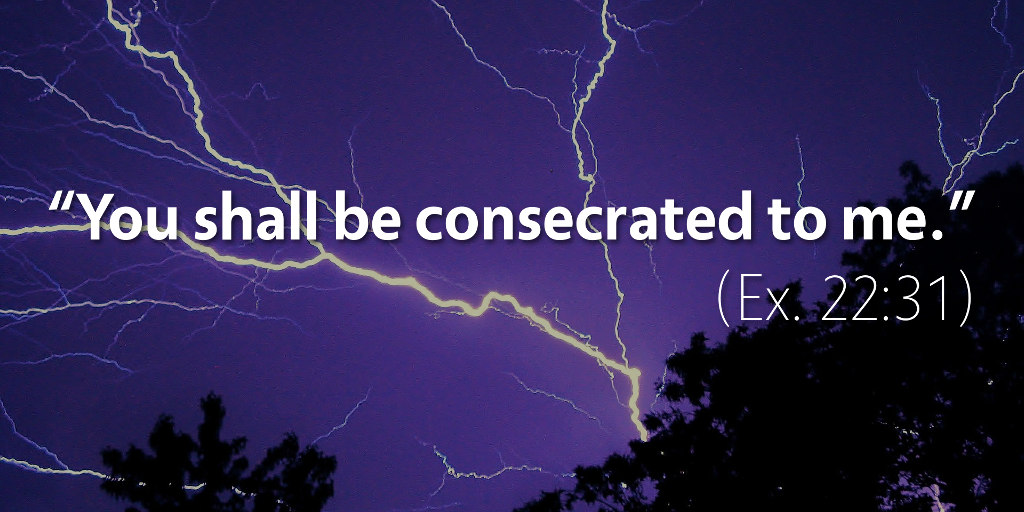Bible Readings for March 11th
Exodus 22 | John 1 | Job 40 | 2 Corinthians 10
Exodus 22:31 might be the most interesting verse in the whole chapter: “You shall be consecrated to me. Therefore you shall not eat any flesh that is torn by beasts in the field; you shall throw it to the dogs.” It is sometimes difficult to imagine why Yahweh places such an emphasis on the food that Israel ate—not to mention several other eyebrow-raising emphases in the law—but here we get an explanation: eating defiled food defiles the one eating it. And since Israel is consecrated (holy) to Yahweh, it is unacceptable for them to be defiled in this way.
The law was never intended to be about technicalities, trivialities, or micromanagement. Rather, the law reflects the weighty holiness of Yahweh himself, and it is given so that Israel can live out their status as the consecrated people of God.
Here in Exodus 22, then, God is seeking to dwell again with his people—the same mission he has pursued since expelling Adam and Eve from the Garden of Eden when they sinned. Yahweh has already visited them, leading them as a pillar of cloud by day and a pillar of fire by night, and he is now coming nearer to his people on Mount Sinai in the full splendor of his holiness, with thunder cracking and lightning flashing and in a thick cloud of smoke resting on top of the mountain.
Even here, however, Yahweh is too holy for the people to approach him, and so Yahweh commands that Israel consecrate themselves, and he forbids the people from touching the mountain (Ex. 19:9–25). On one hand, Yahweh desperately wants to be with his people, but on the other hand, Yahweh’s holiness would consume sinful Israel in a moment if they came near to his presence.
So how will this possibly work? How will Israel survive if Yahweh comes nearer to dwell with them?
Israel will survive through obeying the law in its holiness. This law is given for their protection, to outline the holiness required of them so that God can dwell in their midst.
Of course, as Christians who have already heard the rest of the story, we know that Israel will not be able to keep this whole law, and this system will eventually fall apart completely. Yahweh extends ample grace to make up for Israel’s shortcomings along the way, but he ultimately cannot dwell with his people permanently according to the terms of this particular arrangement.
Instead, for Yahweh to dwell in the midst of his people, he must address their problem of sin through his own holiness, not theirs. Through his own Son, the Lord Jesus Christ, Yahweh will make his people holy, just as he is holy.
So, while this law is one step toward securing Yahweh’s holy, eternal dwelling place in the midst of his people, the law is not the final word—Jesus is.
Podcast: Play in new window | Download (5.1MB) | Embed
Subscribe: Apple Podcasts | RSS | More

Scripture quotations are from The Holy Bible, English Standard Version copyright © 2001 by Crossway Bibles, a division of Good News Publishers. Used by permission. All rights reserved.


